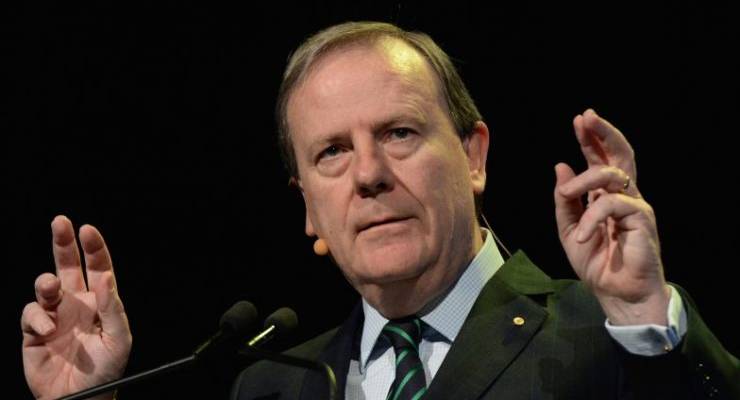
It took a pandemic to finally slow the hitherto remorseless rise of the big four consulting firms to the dominant position in Australian public affairs.
Having grown in recent years to become one of the biggest sources of political donations while siphoning off billions in government contracts, Ernst & Young (EY), PricewaterhouseCoopers (PwC), KPMG and Deloitte all pulled their political funding back in 2019-20, but still made major contributions.
EY, which in 2018-19 gave more than a quarter of a million dollars to the major parties, handed over only $72,000 in 2019-20, split roughly equally between both sides, with the ruling ACT Labor and Tasmanian Liberal parties doing best (state and territory governments are lucrative sources of contracts as well).
Deloitte, used to splashing $170-180,000 around on politicians, in effect halved its donations to $95,000 — including a $25,000 subscription to both federal Liberal and Labor fundraising events.
PwC, the top dog in big four donations, also more than halved its contributions from $386,000 to just $166,000, including a monster $120,000 in “other receipts” to federal Labor.
KPMG, which in recent years has given about $200,000 to the parties, cut the least, still providing more than $150,000, picking up a pair of $25,000 subscriptions and handing over $33,000 to Queensland Labor.
Another key sector heavily reliant on government — the media and communications sector — was also on the donor list.
The Nine Network, chaired by Peter Costello — which came under fire for hosting a Liberal Party fundraiser when Hugh Marks was CEO — again showed its preference for the Liberals. Nine bought a $25,000 subscription from each side. It recorded a further $35,000 donation to the federal Liberals. (A Nine spokesman called to clarify that the $35,000 represented the goods-in-kind donated by the company to enable the aforementioned fundraiser to happen.)
Telstra also favoured the Coalition, giving $55,000 to the conservatives and nothing to Labor. Optus played a straight bat and bought a $25,000 subscription from both sides. Village Roadshow, which used to be an even-handed and generous donor, gave more than $50,000, nearly all to the Victorian Liberals. Broadcaster oligopoly lobby group Free TV split its $30,000-odd two-thirds to the Coalition and one-third to Labor. Macquarie Telecom gave the bulk of its $180,000 to the Coalition.
The finance sector, long the beneficiary of a protection racket run by the Coalition, also contributed. ANZ did its now-traditional practice of giving $100,000 to both sides and avoiding attending fundraisers. The Commonwealth Bank split its reported donations of $151,000 roughly in half; Westpac cut its donations dramatically from 2019-20, buying a subscription from each side and reporting small individual contributions making up the rest of its sub-$100,000 contribution.
But NAB has ended its policy since 2016 of not contributing to political parties. It bought subscriptions from each party — a $25,000 one from the Liberals, a $20,000 one from the Nationals, and a $40,000 one from Labor. AMP, another financial services company absent from donations in recent years, gave $36,000, favouring Labor. Macquarie Bank gave a quarter of a million, with about $110,000 of that going to Labor.
The banks, of course, have benefited significantly from the government’s decision to ditch many of the Hayne royal commission regulations, along with the strong support of the Reserve Bank in the face of a major recession.
The major media companies, meanwhile, are relying heavily on the government to push through its theft of billions in revenue from Google and Facebook.
And the big four firms? Well, in an era of record government spending, there’s always plenty of opportunities for consultants.








We could cut out the middle men and just vote for one of the Big 4 banks and one of the Big 4 accounting/consultancy firms! save a lot of time and money…
Or maybe appointing the ex chair of KPMG Chris Jordan, head of ATO amounts to the same thing.
Donations = Bribes. No wonder the pollies don’t serve the public. They’re paid not to.
What’s most surprising is how cheaply our political grifters can be bought.
We only see the tip of the iceberg.
Hi Bref. It’s a signalling system, the equivalent of a nod and a wink, to show that one is part of an understood system of patronage and mutual obligation, with the future promise of “revolving doors” opportunities.
See the excellent ‘Game of Mates’, by Murray & Frijters.
You get what you pay for?
When you compare these amounts with, say, the $27 MILLION overspend by the Federal Government on the West Sydney Airport site to the benefit of a substantial donor ( and this is just one deal ) you get an idea this legalised corruption costs the country
“The Donation Daisy Chain”.
More like a Human Centipede.
Swipe cards have become very expensive…luckily the government has helped subsidise them this year, what with Covid and all.